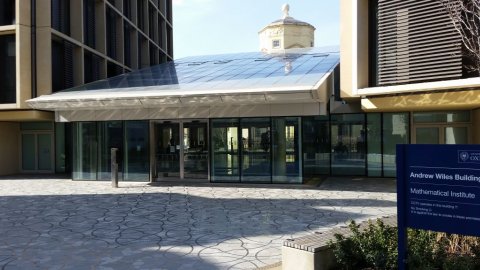G_2-Laplacian Flow
Serge is probably best known outside France for 'Je t'aime', but he was responsible for many other and better works across various media including film and prose and especially via 16 albums.
This track is from 1968. It is based on an English language poem written by 'Bonnie' Parker, one half of the 1930s outlaw couple after whom the song is named. Brigitte shares the vocals with Serge.
16:00
On the Balog-Szemerédi-Gowers theorem
Abstract
The Balog-Szemerédi-Gowers theorem is a powerful tool in additive combinatorics, that allows one to roughly convert any “large energy” estimate into a “small sumset” estimate. This has found applications in a lot of results in additive combinatorics and other areas. In this talk, we will provide a friendly introduction and overview of this result, and then discuss some proof ideas. No hardcore additive combinatorics pre-requisites will be assumed.



